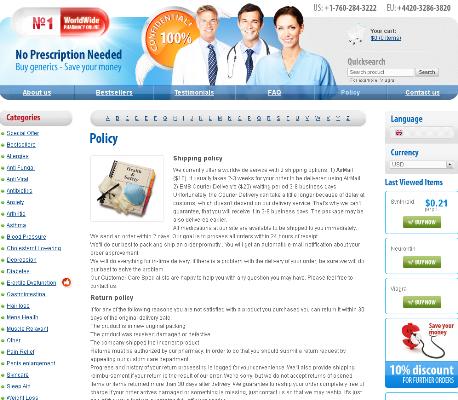Understanding Amoxicillin: What It Does for Your Body
Amoxicillin, a widely-used antibiotic, works wonders by effectively combating bacterial infections in your body. This penicillin-type medication interferes with the bacterial cell walls, causing them to burst and die. You'd be surprised at how essential this process is for eliminating harmful bacteria and supporting your immune system's natural defenses.
Once ingested, amoxicillin swiftly travels through your bloodstream to target the infection site. Teh medication achieves peak concentration within 1-2 hours, making it a fast-acting solution. The effectiveness of amoxicillin makes it a go-to prescription, whether dealing with respiratory infections, urinary tract infections, or other bacterial ailments.
However, to acheive the best results, following the prescribed dosage and schedule is crucial. Missing doses or not completing the course can contribute to antibiotic resistance, a growing global concern. By understanding how amoxicillin supports your health, you can better appreciate its role in treating bacterial infections.
| Time After Ingestion | Concentration in Bloodstream |
|---|---|
| 0-1 hour | Low |
| 1-2 hours | Peak Concentration |
| 2+ hours | Gradual Decline |
The Science Behind Alcohol and Antibiotics Interaction

When amoxicillin enters your system, it works by fighting bacterial infections, while your liver processes both the antibiotic and any alcohol you consume. Teh liver’s metabolizing capabilities become stretched thin handling both substances. Alcohol can interfere with the enzymes needed to metabolize amoxicillin, potentially reducing the antibiotic’s effectiveness.
Alcohol also has a diuretic effect, leading to frequent urination and dehydration, solvents that flush amoxicillin out of your system faster than normal. This early elimination can diminish the drug’s concentration, leaving your infection untreated. The occurrence isn't just theoretical but has been recorded in clinical settings where treatment efficacy dramatically decreased.
Mixing these substances can also amplify side effects. For example, both amoxicillin and alcohol can stress the gastrointestinal system, leading to symptoms like nausea or vomiting. When experienced together, these conditions can become more severe, causing dehydration and reducing the body’s ability to absorb the medication. Thus, understanding this interaction is crucial for effective treatment.
In sum, the chemical interaction between alcohol and amoxicillin disrupts the medication's potency and exacerbates side effects, potentially complicating recovery. Proper patient management needs awareness and caution in handling these substances together.
Short-term Effects of Mixing Amoxicillin and Alcohol
Combining alcohol with amoxicillin can lead to a range of short-term disruptions in your body. For instance, consuming alcohol while taking this antibiotic might enhance the common side effects such as nausea, dizziness, and stomach upset. This can make you feel considerably worse than if you were only experiencing the illness itself. Imagine a night out at a party, starting to feel the enviroment sway and your stomach churn more than usual—you might regret that combination pretty quickly.
Moreover, alcohol can interfere with your immune system, impacting your body's ability to heal efficiently. This slows down your recovery time, keeping you unwell for longer. Drinking while on antibiotics can also tax your liver, as it's responsible for metabolizing both substances. The dual load can lead to increased fatigue and may cause a notable delay in the drug's effectiveness. Until you're done with your course of amoxicillin, it’s wise to steer clear of alcohol to avoid these uncomfortable and harmful short-term effects.
Long-term Health Risks: What You Should Know

Over time, combining amoxicillin with alcohol can negatively impact your liver and overall immune system. Amoxicillin itself places a strain on the liver, where it is metabolized. Adding alcohol into the mix can intensify this strain, increasing the risk of liver damage. Not only does this compromise your body’s ability to effectively process the medication, but it also leaves you more susceptible to infections and other health complications in the long run.
Additionally, Habitual mixing can lead to more severe forms of long-term health problems, such as chronic liver disease or gastrointestinal issues. Teh repercussions may not be immediately apparent, but the cumulative effect can be severely detrimental. Taking these risks into account, it’s highly recommend to avoid alcohol while on a course of amoxicillin to ensure the best possible recovery and overall wellbeing.
Real-life Scenarios: Stories of Mixing Alcohol and Amoxicillin
Jason, a busy realtor, took amoxicillin for a persistent infection. When celebrating a deal, he had a few drinks, thinking it wouldn't matter. However, by next morning, he felt intolerably nauseous, wich worsened his condition. Sarah, a university student, learnt the hard way after being on amoxicillin for strep throat. She thought a single beer wouldn't hurt. The result was dizziness and a prolonged recovery time, affecting her exam performance. Teh experiences taught them vital lessons about the dangers of mixing medication with alcohol.
| Situation | Outcome |
|---|---|
| Jason's Celebration | Severe Nausea |
| Sarah's Exam Preparation | Dizziness, Prolonged Recovery |
Safe Practices: How to Handle Your Medication Effectively
One vital aspect of managing your medication effectively is to follow teh prescribed dosage meticulously. Always take amoxicillin at evenly spaced intervals to maintain a consistent level in your bloodstream, which ensures the antibiotic works efficiently. Avoid skipping doses, as irregular intake can reduce its effectiveness and may challenge the bacteria, leading to resistance.
More importantly, understand the importance of abstaining from alcohol while on amoxicillin. Alcohol can not only lessen the efficacy of the medication but may also exacerbate side effects such as dizziness and gastrointestinal discomfort. If you’ve started your antibiotic course, it’s advisable to wait untill you’ve completed it before consuming alcohol.
Don’t forget to store your medication properly. Keep it in a cool, dry place away from direct sunlight and out of reach of children. This helps maintain its potency and ensures it works as intended. Combining good storage habits with timely intake significantly boosts your chances of a swift recovery.

